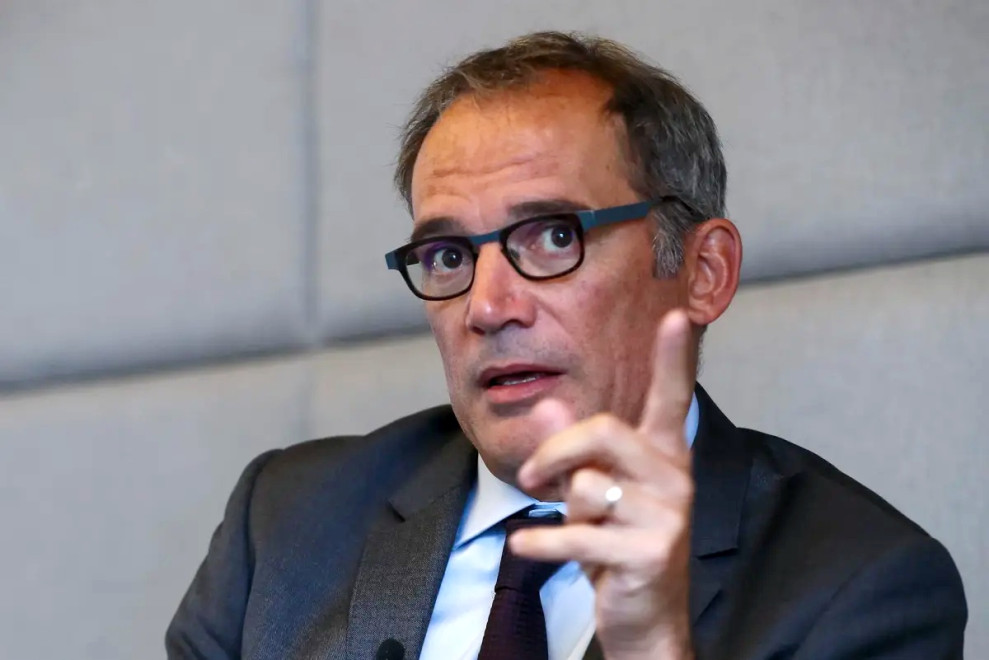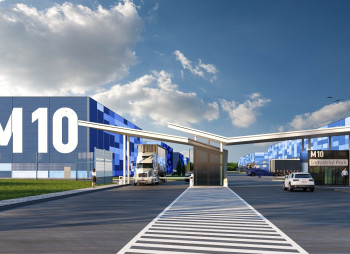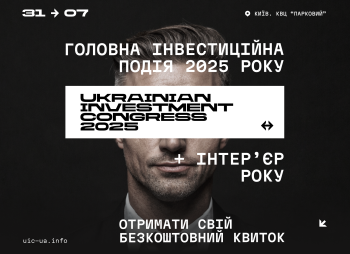The war in Ukraine is dragging on. The basic scenario of the program with the IMF assumes its winding down in the middle of 2024, and the negative one – at the end of 2025. How does this affect IFC's plans for Ukraine?
There are two stages in terms of what we are doing in Ukraine. What we are doing today is what we call "keeping the lights on", which means helping specific priority sectors by providing working capital for their short-term needs. We also provide support for long-term investments, for example to rebuild destroyed infrastructure.
The longer the invasion lasts, the longer we will need to continue focusing on this first phase and the later we will be able to move on to the reconstruction phase. So I think that's the key thing. This won’t affect our commitment or negatively impact investment volumes. Of course, the moment the invasion is over, there will be a much bigger influx of capital into the country. But we will continue supporting the country even if it takes until 2025.
IFC launched a $2 billion response package to support the Ukrainian private sector in mid-December. What are the first results?
-- This is a package that will allow us to invest $2 billion in the next 18 months: $1 billion from IFC’s own account alongside $1 billion in guarantees and concessional finance from international donors. We are in the process of receiving increased support from international donors, which will allow us to do even more. But, as of now, we're using our own funds. We have already significantly increased our presence, our investments without any guarantees or international support, in trade finance, the agribusiness sector, and in the high-tech sector. And we are now exploring other potential investments in the agribusiness sector, which we believe will be critical, and helping the banking sector to provide more financing services.
World Bank Group President David Malpass said at the 3-d Ukrainian ministerial roundtable that the recovery reconstruction and reform Trust Fund (URTF) has been established and that the bank intends to ramp this up to $2 billion to help IFC mobilize an additional $1-2 billion from private partners. Could you tell us more about these plans?
URTF is the trust fund the World Bank Trust established to support the public sector. What we are doing is to mobilize financial support from donors so we can channel it to the private sector. Normally, how it works is, that we can leverage each dollar a donor contributes up to four times, because we can mobilize and bring on board other investors that otherwise wouldn’t have.
So, this is the leverage that Mr. Malpass mentioned yesterday and that we think is fundamental in the current situation.
Now, how can we maximize our impact with limited donor financing? We believe that moving to private sector support is the right way to go. The public sector absolutely needs continued support, but we also need to increase the concessional finance and guarantees needed to support private sector investments.
IFC usually doesn’t work with SOEs or only in specific circumstances. We work directly with the private sector. So that's why, in a way, donors need to decide how to allocate resources between the private and public sector.
In this context, Mr Malpass also mentioned MIGA. What synergy could be there between IFC and MIGA? Who else is ready to insure the risks of investments in Ukraine?
MIGA is the insurance part of the World Bank and provides guarantees. What MIGA has done is to design a war risk insurance instrument which aims to help foreign investors by mitigating the risks resulting from the war.
Ukraine will see a significantly reduced grain harvest in 2023. The recent events around the Black Sea Grain Initiative and the protests of farmers in countries neighbouring Ukraine, show the complexity of the situation. What solutions can IFC offer? Is the corporation ready to support agricultural processing projects in Ukraine?
I don't know exactly what we can do there. I know we are supporting the agribusiness sector in their efforts to export their harvest.
(his colleague says) So there are three things that we are considering and financing. We are looking into how we can support agri-producers and big agri-traders who source from the farmers and help that production reach export markets. We also work with banks outside of Ukraine to provide trade guarantees for exports of Ukrainian grain to these countries. And we are also now in discussions with several banks to provide working capital to farmers by opening lending lines.
Last summer you spoke about IFC's plans to help with housing construction, to reorient the Energy Efficiency Fund for these purposes. A separate residential construction project within the framework of URTF was discussed at the negotiations between the Minister of Finance of Ukraine and the World Bank during the Spring Meetings. What is IFC planning to do in this direction this year?
There is an existing project of EUR 50 million that we have reshaped. The project’s focus originally was on energy efficiency, but a reorientation allows us to use these funds to help families reconstruct or rehabilitate houses that have been destroyed. The focus is not on supporting new residential construction but on funding the reconstruction of damaged dwellings.
Municipalities. In the summer, you pointed out that this is also one of IFC’s priorities in its work in Ukraine. What has already been done and what are the future plans in this direction.
We are in discussions with Lviv to continue renovating municipal buildings. They are good discussions. I think that this will probably be one of the entry points that we will explore. You know that we have worked with Mariupol in the past. When it comes to working with municipalities, we lend without a sovereign guarantee, which is very useful, especially in the case of Ukraine and its lack of fiscal space. However, the guarantees that international donors can provide will be needed.
Lviv is located in western Ukraine. Perhaps we are ready to move further to the east, which has suffered more from the war. Today it is not Kherson or Kharkiv, but, perhaps, Mykolaiv, Dnipro.
We need to know the purpose of our work in a city. To invest in something concrete, we will need to define the objective of the investment and then decide if it makes sense or not, because you don't want to start a project today if it is at risk of being destroyed tomorrow. But I believe that there will be a lot of potential opportunities and needs for reconstruction at the municipal level.
We will really need to think carefully about how to enter into investments on a municipal level, because the needs will be many and the government won’t be able to provide the finance or reconstruction needed on that level, predominantly in the east.
Summing up. Mr Malpass announced $150 million in IFC disbursements to Ukraine since the beginning of the war. What could that amount be at the end of this year?
We have done more. In the next 3-4 months, we have a pipeline of about $400 million. As we said yesterday, we are trying to really escalate, scale up our presence, our investments. I think that we can be at $500 million in the next few months, with over $200 million plus what we have currently in the pipeline. Of course, there are many things that need to happen in order to achieve this.
Last question. What are you expecting from the Ukraine recovery conference in London in June? What's the next step in Ukraine’s recovery process?
I will be there. You know, the World Bank has done an assessment of the country’s needs and how they should be prioritized and identified that $411 billion are needed, with $14 billion needed in the short term. So I see that we have a road map now.
From the Lugano recovery principles in 2022 to a London recovery road map?
Exactly. I hope that there will be an alignment of how to pledge financing and funds, because I really think that we need to redirect financing to those areas and through those institutions that can leverage contributions and multiply their impact now. And I think that IFC can play a big role.





.jpg)
